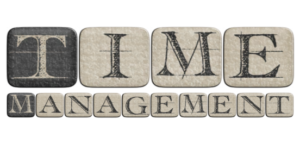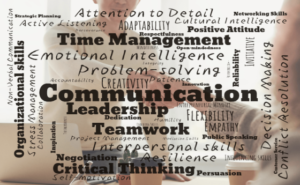10 Office Manager Skills To Level Up Instantly
An office manager requires a versatile skill set to handle the varied tasks and responsibilities that keep an office running smoothly. From organizing and managing schedules to ensuring effective communication and problem-solving, the role demands a combination of abilities.
Here, we’ll explore the 10 essential Office Manager skills needed to become successful, highlighting this role’s importance in any business.
1. Organisational Skills
Importance of Staying Organised
One of the first and foremost skills of any Office Manager is being organized. By keeping the office organized, they ensure daily operations run smoothly. A well-organized office leads to efficient, stress-free, and productive work. Office managers must follow through on all ongoing tasks, track deadlines, and ensure everything is remembered and noticed. This skill helps manage a busy office environment and enables employees to focus on their tasks effectively.
Managing Office Supplies and Resources
An office manager must properly manage office supplies and resources as one of the main responsibilities.
Office supplies refer to important items that an office needs to function. Some examples include paper, stationery, printers, scanners, and others.
In a normal office operation, it is common to face problems such as a shortage of supplies. Therefore, an office manager needs to keep track of stock items and ensure that there is adequate storage of supplies. An office manager should make sure that primary resources are used efficiently to avoid waste. He has to negotiate with suppliers. He also needs to ensure that orders are taken care of properly.
Coordinating Schedules and Meetings
Another crucial task for an office manager is to ensure that meetings and schedules run smoothly. His daily responsibilities include maintaining employees’ calendars, scheduling appointments, and serving as the main point of contact for arranging meetings. He should be able to provide an algorithm team to arrange a conference call with a team in another country. He helps the company to avoid scheduling conflicts and ensures time is used efficiently. He frequently coordinates with other departments and outside parties, as well as with individual employees, to ensure timely attendance at meetings. Proper scheduling also promotes smooth communication and cooperation, preventing schedule clashes and aligning priorities across the company.

2. Communication Skills
Effective Verbal and Written Communication
An Office Manager is a communication expert, both verbally and in writing, with colleagues, management, and external contacts inside and outside the organization. They write clear and concise letters, memos, and reports, including audits. They effectively convey messages in meetings or over the phone, providing instructions and information as needed. Effective communication prevents misunderstandings and ensures that everyone understands the situation and requirements, from information to procedures. This skill keeps the office open in communication with all parties, enabling it to function efficiently as a corporate department.
Interaction with Employees and Management
As an Office Manager, you frequently interact with employees and management. And act as a mediator to facilitate communication and keep both parties informed of expectations and updates. It is crucial to understand an employee’s concerns from management’s perspective and vice versa. When conveying management’s feedback to staff, you should do so politely and objectively. It is necessary to build strong relationships with office staff and management to foster a positive office environment and boost overall staff morale.
Maintain External Communications (e.g., clients, vendors)
As an Office Manager, you must maintain close contact with clients, vendors, and other external partners. When communicating you must maintain professionalism and courtesy. By acting professionally and courteously, you help maintain your organization’s brand image. You handle phone calls with clients, resolve payment disputes with suppliers, and communicate with external finance teams about overdue invoices. Your role involves managing inquiries, resolving client issues, negotiating with vendors, and coordinating with outside entities to ensure smooth transactions. Effective external communication is crucial for the efficient and effective operation of the office. You work closely with external business partners, answer common inquiries, coordinate with suppliers, and address arising issues.
Complete our Complete Course on Communication Skills to elevate yourself.

3. Leadership Skills
Leading and Supervising Office Staff
As an Office Manager, one of your key duties is leading and supervising office staff. Your leadership will guide the team toward the organization’s goals. This involves communicating, giving direction, assigning tasks, and offering encouragement, support, and guidance. You must monitor and review your staff’s work to maintain quality and performance.
An effective Office Manager needs to possess skills such as good communication, experience, empathy, and trust. You should have the authority and confidence to make decisions, take the lead, and take charge when necessary, preventing workplace conflicts. He needs to be proactive and decisive while knowing when intervention is required and when not.
Motivating and Supporting Team Members
Managers should regularly motivate their team members to maintain a high level of employee engagement and satisfaction. Workers are happier with their jobs when managers appreciate and support them. They need reminders that their work is valued and that their managers are committed to helping them achieve their goals. Strategies for motivating and supporting your team include offering self-development opportunities, providing periodic performance feedback, and fostering an inclusive office culture. Essentially, an Office Manager’s role involves keeping the team motivated and committed to achieving daily goals.
Conflict Resolution and Problem-Solving
As an Office Manager, one important skill is resolving conflicts and solving problems. Conflicts arise in all work environments, and you need to step up, mediate disputes between employees, maintain communication, and ensure they reach an acceptable agreement. Additionally, you must be a strong problem-solver, able to identify issues and implement effective solutions. These skills help keep the work environment drama-free and ensure smooth operations without disruptions.

4. Time Management
Prioritizing Tasks and Managing Deadlines
An Office Manager must be excellent in time management. They manage deadlines and priorities by classifying tasks based on urgency and importance, ensuring that key tasks are completed. This means that user experience and responsive services are delivered effectively. Prioritizing tasks helps avoid bottlenecks and boosts office productivity. Good time management involves quickly completing smaller tasks and handling important ones in an orderly manner, rather than waiting until the last minute. This helps to deliver full services to users within the business.
Delegating Responsibilities Efficiently
An important office management skill is delegation: knowing which tasks to assign to team members and matching each task with the person whose strengths best fit. Delegation should include clear communication about what you expect the employee to do and what resources and support they have. By delegating, Office Managers can free up time for essential work and help the team progress toward office goals. Delegation also empowers team members by giving them more autonomy over their tasks.
Balancing Multiple Responsibilities
The work life of Office Managers is very busy, juggling multiple responsibilities daily. They organize and manage administrations, teams, and other tasks. Time management is crucial for Office Managers; switching activities without losing focus and efficiency is essential. Flexibility is another major challenge, as they must react to unforeseen problems, balance their time, and continue working on important projects. Successfully balancing these responsibilities ensures efficiency in their work life.
5. Technical Proficiency
Proficiency in Office Software (e.g., Microsoft Office Suite)
Technical competency is a fundamental skill set for all Office Managers. Proficiency in office software, such as Microsoft Office Suite (Word, Excel, PowerPoint, Outlook), is crucial. Creating Word documents to communicate information, manipulating and analyzing data in Excel, crafting effective presentations with PowerPoint, and managing emails and calendar invitations through Outlook are essential tasks. Proficiency in these tools makes an Office Manager’s duties more time-efficient and ensures tasks are managed correctly.
Familiarity with Office Equipment and Systems
As Office Managers, you must keep management informed about various inspections, including clothing, printing, copying, phone systems, and communication systems. You also need to monitor toner, drums, and other supplies. Preparing proposals for purchasing office equipment, phone programs, and devices is part of your responsibilities. You should be familiar with security checklists, including cameras, motion sensors, and alarms, ensuring they align with the office schedule and number of people. You have to follow up on complaints made by students or staff and should know how to fix them.
Adapting to New Technologies
In today’s workplace, adapting to technological changes is crucial. As an Office Manager, you should stay updated with recent technological developments and be willing to learn and implement new tools and systems, such as project management software, communication systems, and digital platforms. Adapting to technological changes can enhance office efficiency and collaboration, supporting the office in building a competitive advantage. Office Managers should foster an environment of continuous learning and inspire their teams to embrace new technological opportunities.

6. Financial Management
Budgeting and Expense Tracking
Financial management is a fundamental skill for Office Managers. They are responsible for budgeting and expenses. This includes setting up the office budget, forecasting expenses, allocating funds appropriately, and closely tracking expenditures to avoid unnecessary costs. They may also need to make contingency decisions during the process. Effective budgeting helps prevent financial instability and supports higher-level management in strategic planning and goal setting for the organization.
Managing Office Finances and Payments
Financial management is a key duty of an Office Manager. This involves handling invoices, arranging payments for vendors, ensuring timely payments, and accurately recording all transactions in the accounting books to prevent confusion or delays. Efficient financial management prevents avoidable issues that could disrupt workflow.
Financial Reporting and Analysis
Financial reporting and analysis are essential for Office Managers, as these reports help the team succeed in their core work. Office Managers study and analyze financial data objectively to identify patterns and make strategic decisions. They prepare monthly or quarterly financial reports to summarize the office’s performance in areas like marketing, expenses, and cash flow. These reports also include quarterly financial summaries for senior management. Strong skills in financial reporting and analysis enable Office Managers to strategize for the future and ensure the office’s financial sustainability.

7. Customer Service Skills
Providing Excellent Customer Service
Customer service is a key skill for an Office Manager. This involves understanding client needs, responding to inquiries promptly and professionally, and maintaining a courteous manner. A good Office Manager communicates clearly, listens carefully to clients, asks relevant questions, and provides detailed, accurate answers. By delivering excellent customer service, Office Managers help maintain the organization’s reputation and ensure client satisfaction.
Handling Complaints and Issues
Clients view complaint handling as a critical part of service. Office Managers should listen carefully when clients have complaints or issues. hey need to show empathy, investigate the problem, and provide a timely resolution. The handling of the complaint is crucial for any client-business relationship because if we listen to our clients and fix the issues promptly, this can potentially change their negative opinion into a positive one. Additionally, this shows the clients how much the Organization cares about customer experience.
Building and Maintaining Relationships with Clients
Maintaining strong relationships with clients is crucial for the longevity of any business. Office Managers should nurture these relationships through regular communication, personalized service, and exceeding clients’ expectations. This involves keeping clients informed about the services they use, addressing issues proactively, and making clients feel valued in all interactions. Building good client relationships fosters loyalty, encourages repeat business, and leads to positive feedback and referrals.

8. Problem-Solving Skills
Identifying and Addressing Office Issues
An Office Manager must identify and resolve problems before they worsen. This is crucial for maintaining proper office function, staff efficiency, and client relationships. Vigilance is essential, as issues can arise at any time.
To excel in this role, the manager needs to recognize potential problems by understanding whether they relate to office operations, employee performance, or client dissatisfaction. Once a problem is identified, the manager should analyze its causes and develop an effective solution. This proactive approach is key to ensuring smooth office operations.
To sum up, Office Managers should be personally concerned about identifying and solving office problems in a timely manner. As I mentioned at the beginning, the smooth operation of the office largely depends on such macro-management.
Implementing Solutions and Improvements
Solutions and improvements are integral part of an Office Manager’s role. This involves addressing immediate problems and taking steps to enhance office operations and prevent future issues. A key part of this process is analyzing current workflows, gathering feedback from staff, and implementing best practices. Continuous improvement involves a series of initiatives aimed at refining workflows, increasing efficiency, and enhancing the organization’s effectiveness.
Critical Thinking and Decision-Making
Good decision-making and critical thinking skills are essential for Office Managers. These skills help in assessing complex problems and using formal methods to discuss appropriate actions. In an office setting, Office Managers need to filter, evaluate, organize, and summarize complex information and data. They must consider both qualitative and quantitative indicators, understand different perspectives from individuals, departments, and stakeholders, and grasp the office’s procedures and goals. This allows them to make informed decisions about resource allocation and staff management.
Office Managers must appreciate different viewpoints and avoid quick judgments. They should gather relevant information and, when necessary, assess and incorporate new data to make reasoned decisions.

9. Attention to Detail
Ensuring Accuracy in Tasks and Documents
An Office Manager must ensure that tasks and documents are accurate. This role involves several key managerial functions. Paying close attention to details and reviewing documents before sending them is essential to avoid mistakes and ensure that all information is correct and reliable. Properly processing information and documentation is important to meet employees’ needs and prevent misunderstandings or miscommunications.
Maintaining High Standards of Quality
One key duty of an Office Manager is to maintain an up-to-date and reliable quality management system. You must ensure that every task and process in the office adheres to established quality standards. These standards should be adaptable, and developed with input from your supervisors and senior staff, to ensure that everyone meets the office’s work standards.
‘Quality work’ refers to any output that exceeds the standard or expected level. Regular checks and reviews are essential to ensure that business processes are performed accurately, timely, and to the highest quality. High-quality workflows and outputs reflect and contribute to the organization’s operational excellence.
Preventing Errors and Omissions
A representational activity requires no action to prevent errors or double-checking. In contrast, a production system needs proactive measures to prevent errors or omissions, including checklists, training manuals, operational procedures, and forms. Office Managers don’t just review or summarize work-in-progress for executives; they actively prevent errors and oversee those who might make mistakes.
10. Adaptability and Flexibility
Adjusting to Changing Work Environments
Office Managers must reorganize their work environment to adapt to organizational changes, new technologies, and evolving work methods. By experimenting with new approaches, learning the use of new technologies, and adjusting to changing business needs, they help keep the office productive. Adaptability ensures smoother transitions and improves productivity during times of change.
Managing Unexpected Challenges
Coping with unforeseen challenges is a crucial skill for an Office Manager. It involves staying calm under pressure and quickly finding solutions to unexpected problems. This often requires being resourceful, adaptable, and skilled in crisis management. Office Managers must handle tough situations effectively, minimizing disruptions to office operations. A good manager excels at overcoming obstacles without letting them interfere with the smooth running of the office.
Continuous Learning and Development
It is crucial for any Office Manager to continuously learn and develop professionally and be up-to-date with his/her role. Professional development is the practice of actively improving and expanding knowledge and skills by participating in training courses, workshops, and industry conferences. Practicing professional development helps to gain expertise in the role of an Office Manager. Office Managers should stay on top of the latest trends and best practices in office management to further develop their professional skills. By continuously learning and improving their existing knowledge and skills, Office Managers can enhance their performance in their current role and effectively contribute to the ongoing success of the organization.
For an Office Manager, continuous professional development is crucial. This involves actively improving and expanding knowledge and skills through training courses, workshops, and industry conferences. Engaging in professional development helps Office Managers gain expertise and stay current with the latest trends and best practices in office management.
Conclusion
These ten office manager skills will prove to be an essential part of your portfolio if you want to grow your career and be a successful office manager. Acquiring these skills will not only help you perform better but aid your company in having a winning team as well.

